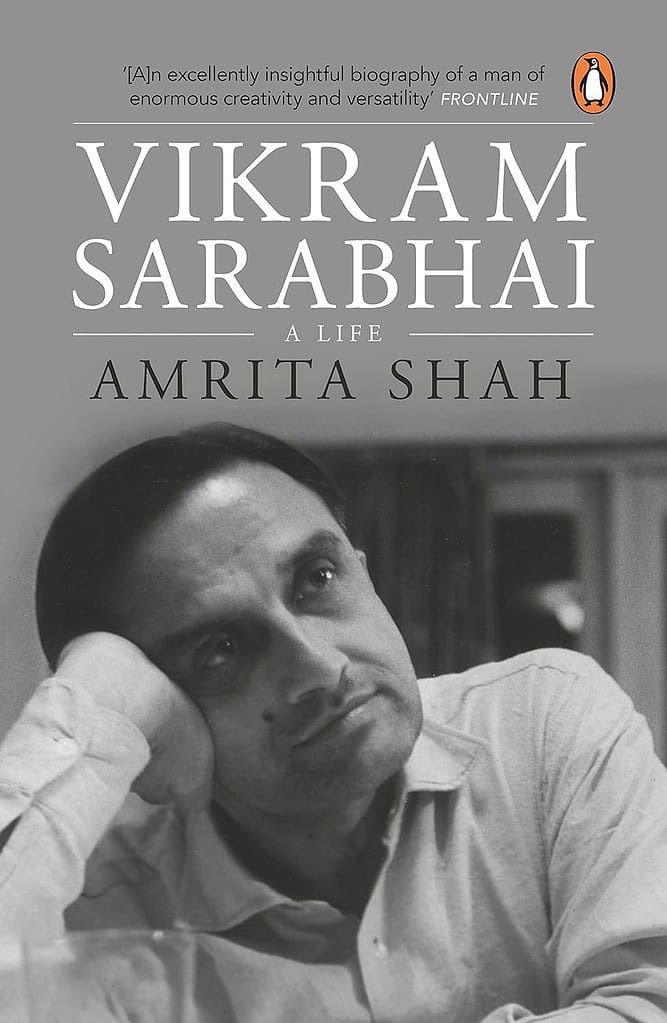Recently I got a chance to read this book “Vikram Sarabhai – A Life” very well written by Amrita Shah. Usually we follow the practice of sharing a book review after completing any book. But this time we have a different way by which we will be sharing the positive and useful lessons that we have learnt from this book –
- Staying focused and calm : The book is an excellent example of an individual’s focus and calmness. It is clear that Sarabhai’s focus towards his work is outstanding, even in difficult situations and challenging times he maintained his calmness and these qualities helped him achieve great results.
The book mentions that Vikram’s preferred source of control was information. According to his colleagues, he read every page of the voluminous reports sent to him by the company CEOs and put whole days aside for board meetings. Nothing escaped his eye such was his focus. - Hard work always pays off: Vikram Sarabhai is a perfect example when it comes to accomplish the unbelievable. Sheer hard work by any individual can help one achieve anything that one aspires for.
As the book states, Sarabhai continued to visit Thumba once a fortnight, spending forty-eight hours. Abdul Kalam describes the average schedule on these trips :
The day starts with witnessing of a Rohini-100 motor flight test. It fails. He tells the Project Leader: ‘don’t give up’. Meanwhile, he discusses with John the plan of SSTC buildings. He gets five minutes and finalizes with Murthy and Gupta the single axis control flight of the RH-125 test plan, linking the inauguration of the SHAR range. He witnesses in Thumba on the same day a two-stage successful rocket flight… his next engagement is a four hour review session on preliminary design study of the SLV3….Then Sarabhai visits the gyro laboratory and is shown the precision components by Gupta.
The schedule winds on with Vikram eventually leaving with forty-five reports of 6000 pages collected through the day. It was like the resourceful farmer harvesting loads of grain from his selective seedings,’ Kalam concludes. - Embracing challenges: It is very true that no one can succeed without facing challenges and tackling them. Sarabhai’s attitude towards different challenges that he faced be it professionally or personally is phenomenal. Learning new technologies, building a suitable scientific ecosystem for his projects are a few steps that Sarabhai implemented to embrace challenging situations. In fact, the challenges were itself a motivational force to him.
An example in this book that talks about this lesson is when Sarabhai was looking forward to setting up a world class management institute in Ahmedabad with the assistance of Ford Foundation. As mentioned in this book, a team of researchers were sent from US to survey Indian conditions for this but they had reported back about the poverty ridden India where the need for primary education schools was much more than management education. But Vikram embraced this challenge and met the representatives of Ford Foundation again and requested for a second team of researchers to be sent to the Indian subcontinent. The second opinion proved more favorable and thus the dream to setup a management institute in Ahmedabad took off. - Excellent team player: As seen in multiple instances in the book, Vikram Sarabhai was an outstanding team player. He not only guided the team very well but also made sure that everyone’s opinions in the team were heard. At different times, many of the team members have mentioned him as an easy going person to work along, a great team leader and a meticulous listener to everyone’s views.
Clearly the book mentions on this value – One of the reasons why Vikram was to be successful in all his enterprises despite the variety and geographical distances was his ability to connect with people. Vikram Sarabhai believed in trust, collaboration and mutuality and divinely followed these. He would greet everybody, right from the sweeper to most senior executive with extreme friendliness. He would come when invited by his staffers to their children’s birthday parties or their musical recitals. He had a touching concern for people’s difficulties. - A true patriot: Sarabhai’s patriotism is incredible. When it came to setting up new technologies be it nuclear or space programs, Sarabhai made sure that instead of adopting foreign methods we learn from them and setup our own methods in Indian soil. He also ensured that this is a stepping stone for Indian space, nuclear and other scientific programs. This has certainly helped our country’s future strategies in science and technology.
For instance as we read in this book, Vikram believed strongly in exposure to sophisticated technology of the West; he was of the opinion that India’s first satellite should be built and launched from abroad to avoid delays and give India engineers experience that they could use back home. Having said that, at the same time Sarabhai opposed to the import of obsolete technologies from abroad. He wanted the Indian technology to be as current as that of the West and produced as economically as possible.
These are a few lessons that we learnt from Vikram Sarabhai’s book but surely there is a lot more to know. Here we are sharing the Goodreads link for this book – https://www.goodreads.com/en/book/show/2189595
Also here is a Amazon link for the book to purchase – https://amzn.to/3wjSIAA

Other book reviews by us
Gripping Review: ‘The Family Upstairs’ by Lisa Jewell – A Mesmerizing Start to the Series – Part 1

